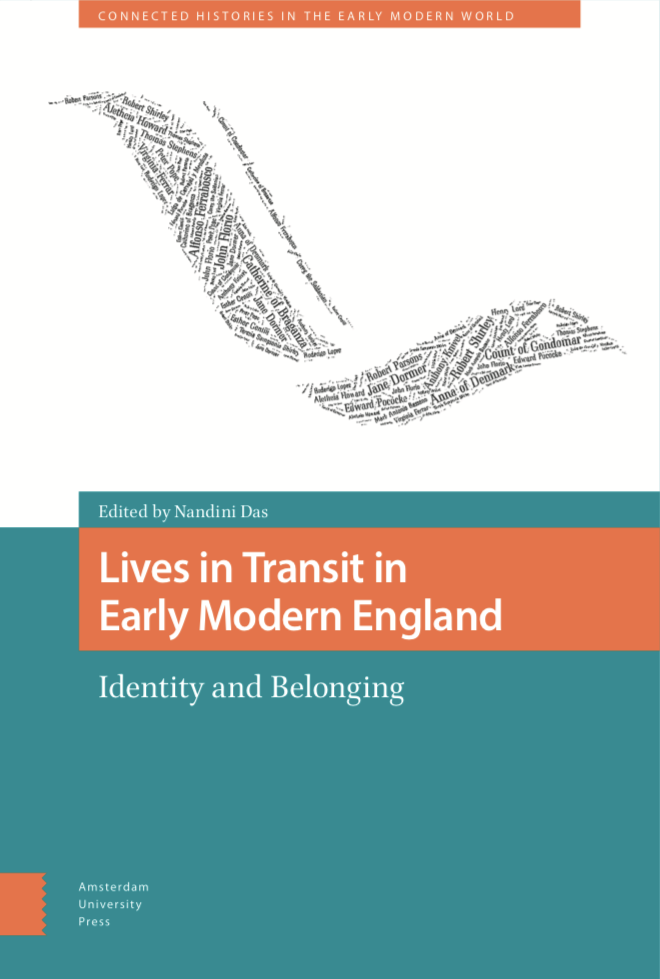
We are delighted to announce that the ERC-TIDE project’s second collaborative output, Lives in Transit in Early Modern England, is now available in print and online open access with Amsterdam University Press! This collection of 24 microhistories explores the lives of transcultural figures in the period, and the ways in which border-crossers of all kinds negotiated a place for themselves in a new language, country, or culture and navigated the often exclusionary parameters of belonging. They also reflect on our own methods of knowledge production, particularly in places where the archival presence is limited or heavily mediated.
The subjects of Lives in Transit are drawn from a range of professions, nationalities, preoccupations, and social statuses. Though not exhaustive, the selection represents a wider variety of the peoples who moved, voluntarily or otherwise, across borders and boundaries in this age of travel. Each of the subjects had different imperatives for moving in and out of England, and to reflect these, the microhistories are divided into four separate but often intersecting sections. ‘In and out of the state’ focuses on those whose connections and mobility allowed them to act directly or indirectly as agents of the state, whilst ‘Intellectual Exchange’ explores a selection of figures with valuable skills that allowed them to transfer knowledge across linguistic and cultural boundaries. ‘Conversions and Conversations’ looks at figures wrapped up in the religious dynamics of the period as evangelisers or converts, whilst the final section, ‘Managing Liminality’ shines a light on the problems and possibilities of living a transcultural life in-between, and how these continue to inflect our historiographical approaches.
You can access and download Lives in Transit in Early Modern England free of charge by clicking here. If you find the volume interesting or useful for your research and teaching, please let us know via Twitter @ERC_TIDE!






